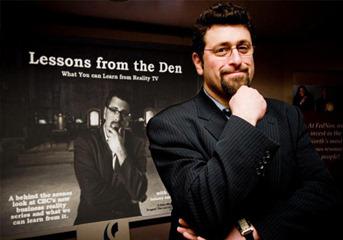 After the idea, it’s all about execution. In fact, it’s not clear that even the idea is all that important. Most investors tell me that an A entrepreneur with a B idea is much more fundable than a B entrepreneur with an A idea. It’s great to be a visionary, inventor, thinker, or a dreamer, but none of these matter in the business world if you are not also a do-er.
After the idea, it’s all about execution. In fact, it’s not clear that even the idea is all that important. Most investors tell me that an A entrepreneur with a B idea is much more fundable than a B entrepreneur with an A idea. It’s great to be a visionary, inventor, thinker, or a dreamer, but none of these matter in the business world if you are not also a do-er.
According to Professor Sean Wise, who claims to have worked with more than 15,000 entrepreneurs (including many with the popular TV shows Shark Tank and Dragon’s Den), no matter how great the idea and the opportunity, in the end it is only the execution that creates change and generates wealth.
His new book, “HOT or NOT: How to know if your Business Idea will Fly or Fail,” focuses not only on the elements of a good idea and a good pitch, but also on the key attributes that we both look for in identifying the entrepreneur who can deliver, versus the fast-talking idea person:
-
Never fails to be an evangelist. This entrepreneur gets out there and actively looks for people who can help make an idea into a business, including potential customers, suppliers, employees, investors, friends and peers. No secret discussions about the great idea, or paranoia that someone else will steal it.
-
Willing to listen, and will address skeptical views. Good executors always ask the hard questions, and don’t let people get away with saying just what they want to hear. They dig deep, and keep asking questions until they understand what you don’t like or won’t work, and even offer do some homework before getting back with a better answer.
-
Proactively sets metrics and track goals. There are more things in a business to keep track of than any single human being can accomplish without a serious project management mindset. Good implementers find a way to translate long-term goals into daily action items, and make sure everyone is “singing from the same song book.”
-
Ties rewards to performance results. Effective business people work hard to align everyone in the organization toward key metrics. They don’t hire friends, or just pay people for showing up and looking busy. A properly designed rewards structure is the most powerful tool for mobilizing the team to meet business success objectives.
-
Ties organizational structure to strategy. The entrepreneur who can execute quickly identifies strategic value chain activities and can quickly communicate who’s in charge of each one, so these key activities don’t fall between the cracks. This doesn’t require that all traditional titles be filled, to impress investors, or due to a lack of imagination.
-
Willing to question assumptions and adapt. Most successful startups make several major pivots early in their business lives. The chances of your first business plan being correct are very low, so great entrepreneurs take ownership of their plan and make it a living document. Others commit to stay the blind course, and will probably fail.
-
Entrepreneur is a personal role model. Not only does an entrepreneur breathe life into the company, but they also instill their values, passion, and work ethic. If they can’t make and keep commitments, neither will the company. Investors recognize difficult personalities and large egos as high risk for effective execution.
Of course, entrepreneur evaluation, as well as opportunity evaluation, is a highly subjective process. We all have biases that can trick us into making bad decisions on people, as well as ideas. Thus the best entrepreneurs, and the best investors, spend more time trying to find information that refutes their beliefs, rather than more data which might support a bias.
Certainly, successful implementation requires an understanding of the "big picture," but the devil is in the details. Yet leading for execution is definitely not about micro-managing people or doing it all yourself. It is about “owning” the process, leading others by example, with no excuses.

